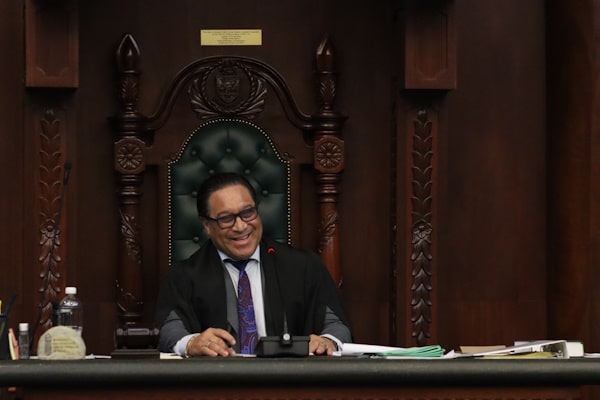(CNS): After almost 50 years, members of parliament have passed a new set of Standing Orders, the rules that govern the proceedings in the House, which are expected to modernise and streamline its business. The new orders introduce fixed days and new hours for parliament to sit, a two-month recess in the summer and a regular Premier’s Question Time.
They will come into force on 28 February and will direct procedures when the new term commences after the April General Elections. Although the full draft orders have not yet been made public, officials said they expect them to be available on the website shortly.
Some of the main areas of reform include clearer procedures for the presentation, reading and publication of bills, and ensuring greater consistency with section 11 of the Cayman Islands Constitution (Amendment) Order 2020, which says that bills must be published at least 28 days before being considered unless the premier certifies urgency.
The orders also formalise the meeting days of Parliament as Wednesdays, Thursdays, and Fridays and adjust sitting hours from the current 10am-4pm to 2pm-8pm with an optional 30-minute suspension at 5pm. A fixed recess period has been introduced from the first week of July to the first week of September each year, except for urgent and extraordinary matters.
A major change that could help the public engage more with the parliament is the introduction of a Premier’s Question Time every Wednesday for 30 minutes, when any MP can ask questions about the government’s overall performance, as well as a 15-minute Urgent Questions period at every sitting that allows MPs to raise pressing matters in the public interest.
The old Standing Orders allowed ministers to file questions in writing, which were usually answered by the civil service. However, successive governments have been bad at answering these questions in parliament, and the UPM was one of the worst administrations for failing to supply answers. This led to an admonishment by McLaughlin in July when he said the 17 outstanding questions at the time were “abhorrent to democracy”.
But future premiers will have to think on their feet and be far more aware of their own government policies and how to defend them in the face of opposition queries and criticisms.
The changes will also introduce some shorter time limits on certain types of speeches, such as personal explanations from members that will now be limited to 10 minutes, while government statements will be capped at 20 minutes with prior Cabinet approval.
The new orders give Finance Committee the power to summon individuals and request necessary documents for its deliberations and for the House to resolve itself into that committee or for the chair to summon a meeting when needed. Specific provisions have also been added for the Standing Business Committee, which will now be chaired by the speaker and its members are no longer required to be elected by the House.
In future, in exceptional circumstances and with permission of the speaker, MPs will also be able to attend virtually, reflecting the evolving needs of parliament. Members will also be allowed to use supplementary visual aids during a debate.
The full set of new orders was unanimously approved by the members through a government motion during the last meeting of parliament. Since 1976, the Standing Orders have received only ad hoc revisions, despite the significant constitutional and parliamentary advances that have occurred over the last five decades.
As the last meeting drew to a close, Speaker Sir Alden McLaughlin said, “Our parliament and its standing orders are the cornerstone of our democracy.” Noting how pleased he was that he had managed to complete the changes, which began under his predecessors, he said, “For many years, I have longed to see them revised to enhance the effectiveness and efficiency of our legislative proceedings.”
McLaughlin added, “These reforms represent a significant step forward in strengthening our parliamentary democracy and finally bring the procedures in parliament into alignment with the constitutional and other parliamentary changes which have taken place over the last 15 years. They will enhance the ability of parliament to speak with and scrutinise the work of government effectively while ensuring that parliamentary proceedings remain accessible to the public and in line with modern needs.”
Having played a key role in modernising the Constitution and governance in Cayman when he was premier, McLaughlin also led the effort to transition the Legislative Assembly to the House of Parliament and to make it an autonomous entity, independent of control by the executive. He successfully piloted the Parliament Management Act through the House, creating the Parliament Management Commission and the Council, which now manages the administration of the body.
“The Parliament Standing Orders 2025 is the final piece of the structural change necessary to give the Cayman Islands a modern, forward-looking democratic framework, fit for the 21st Century,” the speaker said.
The orders were in the works for more than three years. The Standing Orders Working Group began its review in 2021 under the chairmanship of McKeeva Bush, who was speaker then, and continued under Katherine Ebanks-Wilks. During McLaughlin’s time as speaker, the group, which included the attorney general, the first legislative counsel, the clerk and assistant clerks of parliament, held more than 25 meetings over the last year.
















